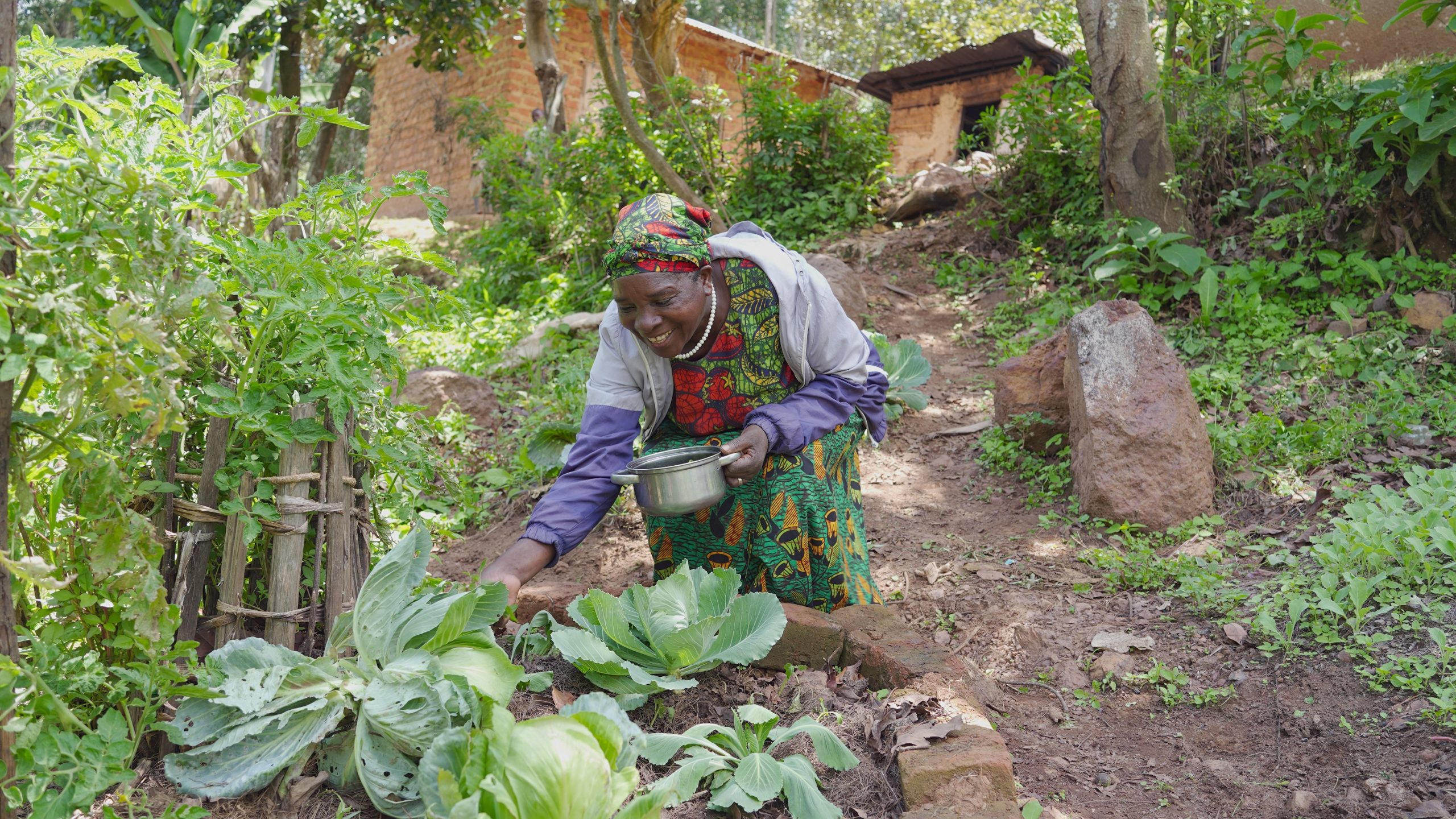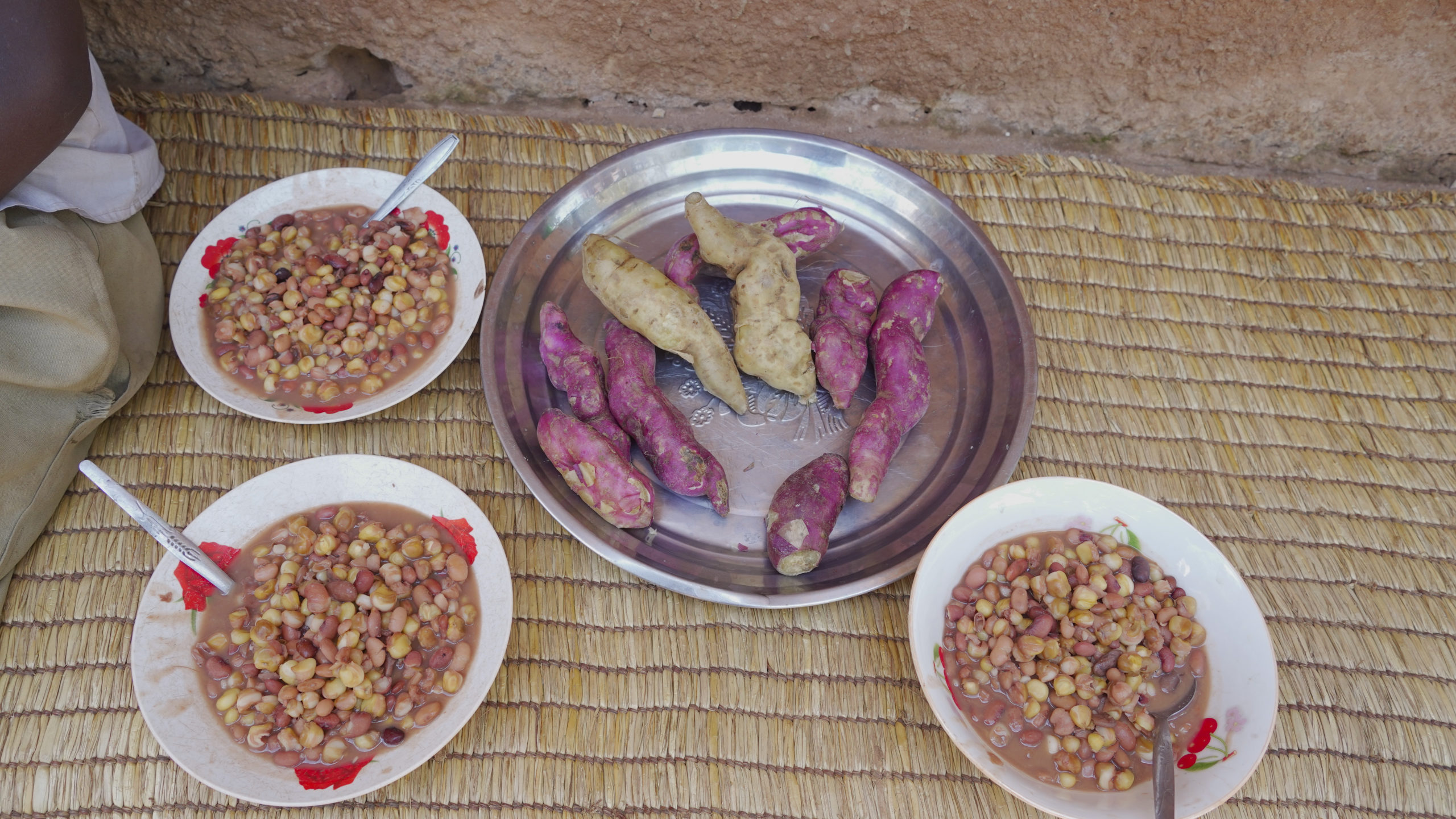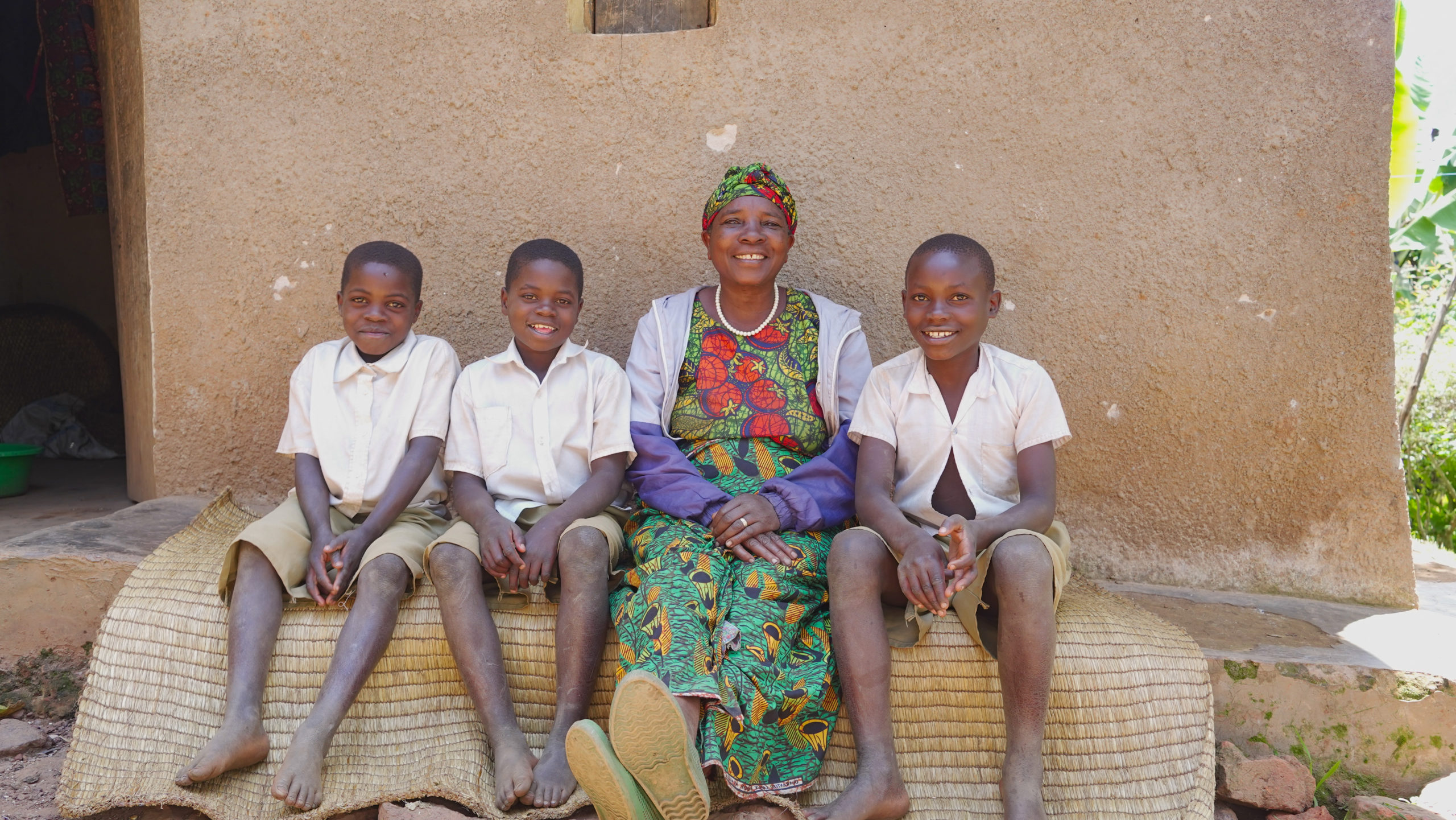From Subsistence to Security

Molly, a grandmother to three, resides in the Rubanda district, surrounded by the stunning but challenging hilly green terrain. As a subsistence farmer, she grows beans, sweet potatoes, and sorghum but with very low returns. Her spouse works in the village school, but even with his income and their farming combined, they found it difficult to put food on the table and make ends meet. Molly’s family was not alone; most of the community members in her village experienced diminished yields as subsistence farmers. But this changed when Rutooma partnered with Raising The Village in June 2022.
Molly and her fellow community members participated in training sessions on Good Agronomic Practices (GAP). They learned the importance of good quality seeds, creating organic pesticides and liquid manure. They also learned about practices such as constructing compost pits, optimizing crop spacing, line planting, keyhole gardening, and optimal post-harvest handling. “I had never made compost pits before; it was so new to me. But the results we got after applying the new practices were great. ” Molly and her community received improved seeds for beans, Irish potatoes, maize, and nutritionally diverse vegetable seedlings and applied the knowledge gained using modern farming techniques.

Molly soon witnessed a considerable change in her results. She harvested over 400 kg of Irish potatoes and 95 kg of beans from the improved seeds. She sold about half of her harvest for UGX 527,000 (approximately USD 140), purchased a pig, paid her grandchildren’s school fees, and invested in their women’s Village Savings and Loans Association (VSLA).
To provide a nutritionally diverse and wholesome diet for her family, Molly planted a keyhole garden and started growing vegetables for her family’s consumption. Her family now relishes maize boiled with beans, sweet potatoes, and greens, all sourced from their own garden. “My favourite vegetables are dodo (amaranth, a leafy vegetable) and black nightshade; I enjoy them so much. Moreover, since we started consuming vegetables and greens, our health has improved,” says Molly. To ensure her garden remains sustainable, Molly set up nursery beds to transplant new vegetables, ensuring a continuous supply. She also extracted seeds for the next planting season after each harvest and diligently prepared liquid and compost manure to support her vegetable gardens.

Molly’s dreams are as vibrant as her gardens. “I want to provide my grandchildren with quality education and make sure they finish school,” she said. She plans to further invest in livestock and the Village Savings and Loans Association and continue increasing her family’s income.
Be part of our journey. Support last-mile communities by supporting Raising The Village.
Let’s Stay Connected

